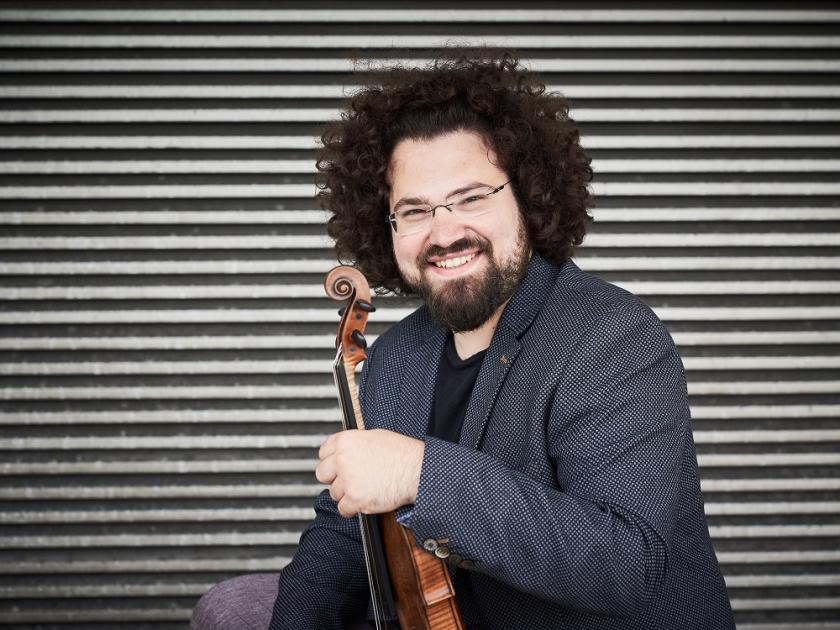Violinist Jonas Ilias-Kadesha was placed front and centre of the publicity for this concert. This is his first season concert with the SCO, though back in 2019 he stood in for an indisposed soloist at short notice for one of their European tours. Inviting him back is a vote of confidence, so I was looking forward to hearing him as soloist in Mozart’s Violin Concerto No. 5 and Ravel’s Tzigane.
His Mozart turned out to be a very mixed bag, however. It began well, with clipped, precise playing from the Scottish Chamber Orchestra in the opening tutti, and an improvisatory opening flourish from Ilias-Kadesha that suggested we were in for a high-flying display of spontaneity. But if spontaneity is all very well then it often needs to be better rehearsed. Several times in the first movement Ilias-Kadesha’s coordination with the orchestra was “relaxed”, to put it politely, with some frayed entries and uncertain lead-ins. Nor did his violin tone always work. His style was mostly introverted and light, which can sound personable, and it worked very well in the often whispered cadenzas. It meant that he was often swallowed up by the orchestra, however, and consequently much of the cut-and-thrust was lost in the outer movements. He was better behaved in the slow movement and, therefore, more conventional, but this was a performance of the work that came into focus only intermittently.
Ilias-Kadesha himself really came into his own in the finale where he gave the orchestral line a kick of energyTzigane is so precisely written out that it gave Ilias-Kadesha fewer opportunities to toy with it. Here his violin tone ranged from earthy to mischievous, and the interplay with the orchestra was tighter, perhaps helped by the consistent tick-tock rhythm of the harp. But if this was an impressive performance then it was also just a little sterile, an accurate account of the notes without much soul.
The impact was far greater when he swapped the soloist’s podium for the director’s chair in a terrific performance of Bartók’s Divertimento, one whose outer movements were full of wiry energy but soft enough to let the beauty shine out intermittently. The SCO strings sounded oaky and ripe, far richer than you’d have any right to expect from a string section of this size, and they made Nikos Skalkottas’ Five Greek Dances sound like terrific fun, with a lopsided energy that made them feel as though they were always listing slightly off course. Finest of all was a terrifically energetic performance of Ligeti’s Concerto Românesc.
This is very much the warm and friendly face of Ligeti, full of folk rhythms and hummable tunes, and the orchestra played it with terrific stomp in the faster sections. Ilias-Kadesha himself really came into his own in the finale where he gave the orchestral line a kick of energy, and his solo violin line sparred off the other musicians as though it were a comedy routine. It’s a shame there hadn’t been more of that elsewhere.















Add comment